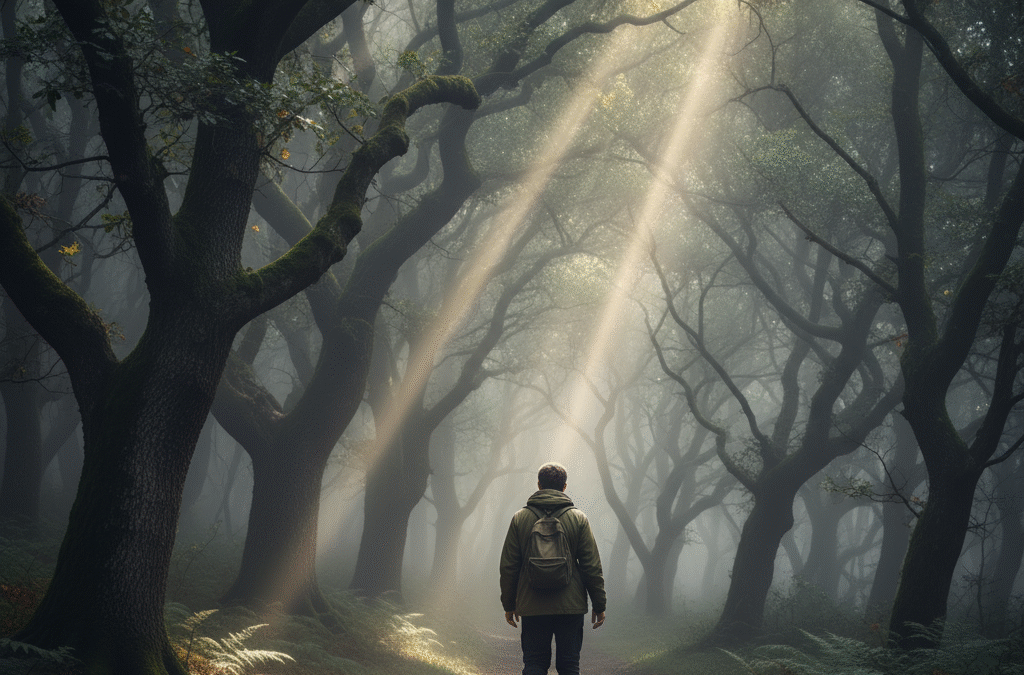We’re indoctrinated with the notion that knowledge is power, and that education leads to freedom and happiness. That’s the foundation of society today: the more you know, the more powerful you become. Schools, libraries, even the computer are all institutions working to feed our hunger for information. Not to know is a deficiency, a lack, something to overcome at any cost.
And yet, life does have a way of jumbling our neat boxes. For sometimes, ignorance isn’t merely a lack, it is a form of strength, a form of wisdom.
Take a child standing up in the evening to watch the sky on a night when the stars are visible. He knows nothing of the physics of stars, the age of the universe, or nuclear fusion. All he’s ever been instructed is that there’s a light covering the sky and it’s beautiful. And this ignorance makes him capable of being able to feel wonder in its uncorrupted, unthinking state, unencumbered by the cold rationality of science. Knowledge doesn’t destroy wonder, of course, but ignorance gives it a crude, unpolished edge which knowledge will seek to refine away.
There is also what could be called a protective ignorance. Too much information, particularly when presented all at once, is too overwhelming. Physicians, for example, will occasionally state that they almost feel bad for individuals who have no idea of the infinite number of ways the body can fail, or the insidious speed by which disease takes hold. With too much information, even a cough can provoke horror. Periodically, it is not knowing that enables us to continue existing in ease.
This paradox has been debated by thinkers for thousands of years. Socrates believed that the only wisdom was to acknowledge that you don’t know. His intention was not to praise ignorance, but to induce humility, the awareness of limits, which is stronger than pride. This ignorance protects us from pretending to know. It makes us aware that we are shorter than what we know.
Practically speaking, ignorance even allows for courage. Take a traveler who heads into the sea without an awareness of all the dangers that lie ahead. His ignorance seems to be folly, but it also gives him the guts to go. Had he been aware of all the dangers and storms that could be his lot, he would have stayed home. Sometimes ignorance will provide us with the ability to act upon risks which knowledge will immobilize.
But let us be careful not to idealize ignorance too highly. It is also dangerous, laying persons open to manipulation, exploitation, or injury. To reject knowledge when it may save us from misery is folly, not wisdom. The question is not to choose between knowledge and ignorance but to be aware of the conditions under which each will be of greatest service.
Perhaps the wisdom lies in equilibrium. Knowledge leaves us with tools, awareness, and the delusion of control. Ignorance, should it be voted into power or adopted, leaves us peace, humility, and the pleasure of not being weighed down by the crushing responsibility of knowing too much. For sure, it is perhaps not “ignorance” in its shallow sense, but an unknowing, a conscious acceptance of the reality that not all the truth can be had, that all the secrets cannot be unfolded.
In a time when information encircles every moment of our existence, this frame of mind is especially fitting. We can Google the answer to almost anything, surf headlines and posts ad infinitum, and consume more facts in a day than any previous generation did in an entire lifetime. Has it all made us more intelligent, or just more desperate? Mostly the latter. Sometimes the best thing to do is not to know, to turn off the steady flow of information.
So can ignorance surpass knowledge? It is not an easy reply. Ignorance may blind, but also set free. It may mislead, but also shield. Perhaps the true wisdom lies in knowing how to not know, and in accepting the mystery that ignorance allows us to feel. And in any case, what is life without a pinch of mystery?
